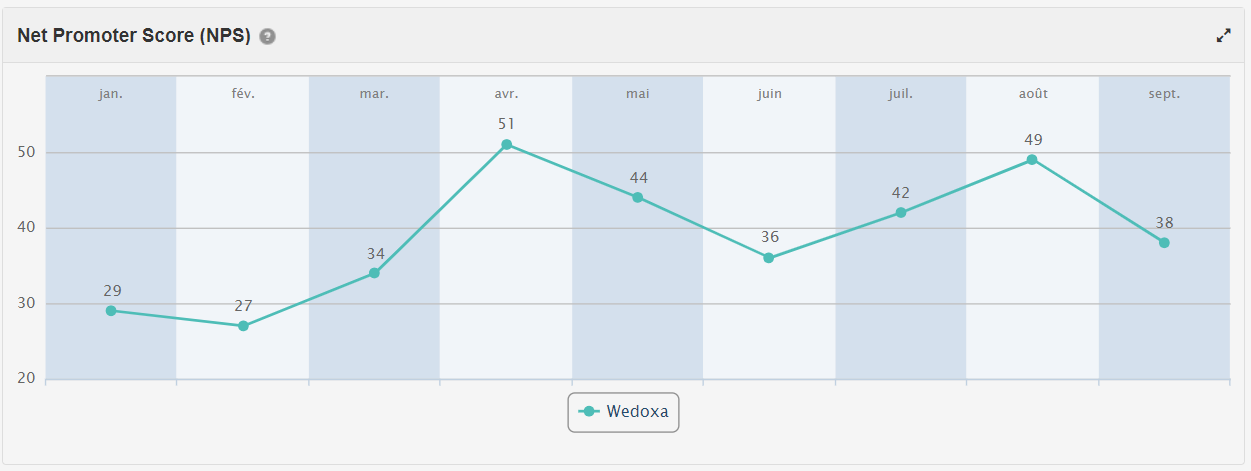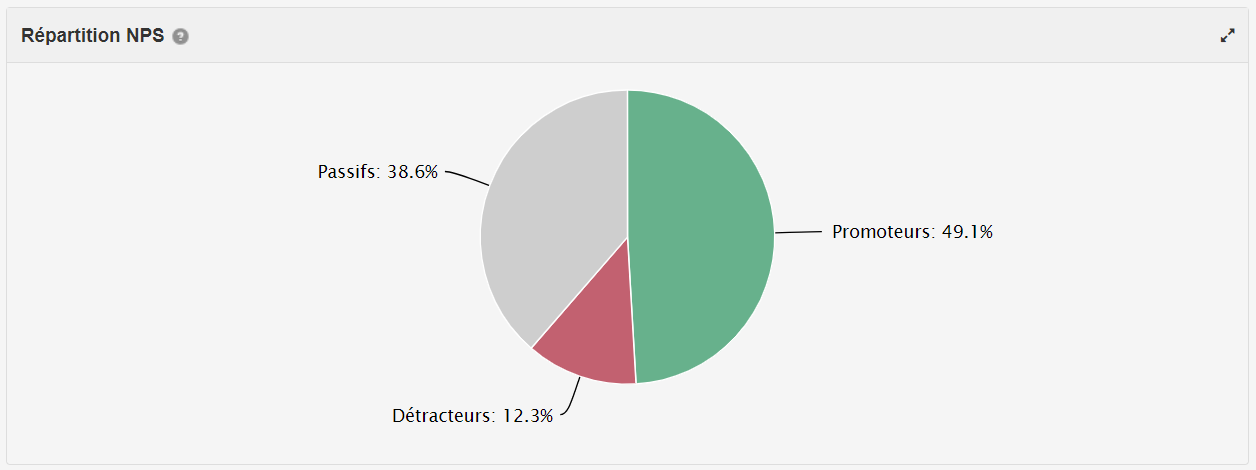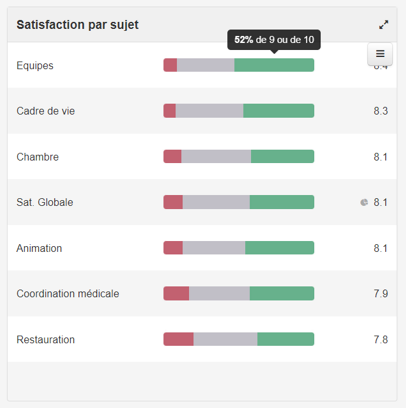NPS and e-NPS
Net Promoter Score
The Net Promoter Score is an internationally recognised indicator which allows brands to compare themselves to each other. This indicator evaluates the level of recommendation of a brand by asking their customers. It goes a step further than the classic satisfaction survey by measuring the social dimension (recommendation).
The Employee Net Promoter Score is the equivalent of the NPS but for the employees. It measures the level of recommendation of an establishment regarding its employees.
The NPS is not a percentage but a score.
An NPS score ranges from -100 to +100. It's determined from a simple and objective question:
Would you recommend the establishment to your relatives? WeDoxa systematically includes this question in its surveys.
Responses are defined on a scale of 0 to 10 and respondents are grouped into three categories:
- The patients so-called promoters are the one who gives a score of 9/10 ou 10/10
- The patients so-called passives are the one who gives a score of 7/10 or 8/10.
- The patients so-called detractors are the one who gives a score below 7/10.
The overall NPS is the percentage of promoters minus the percentage of detractors. Passives are considered neither satisfied nor dissatisfied and are not included in the calculation.
The final score (the NPS) is between -100 and +100. A positive score means that you have more promoters than detractors. If your NPS is higher than 30, do not hesitate to use it in your external communications.

A methodology for organising patient tracking
Beyond the score, the NPS enables to establish a structuring methodology and helps to manage the patient relationship. WeDoxa fully integrates this classification into the software's statistics.
Satisfaction rate & NPS
NPS evolution throught time
Distribution of patients by NPS profile
All questions are analysed using the NPS method.





